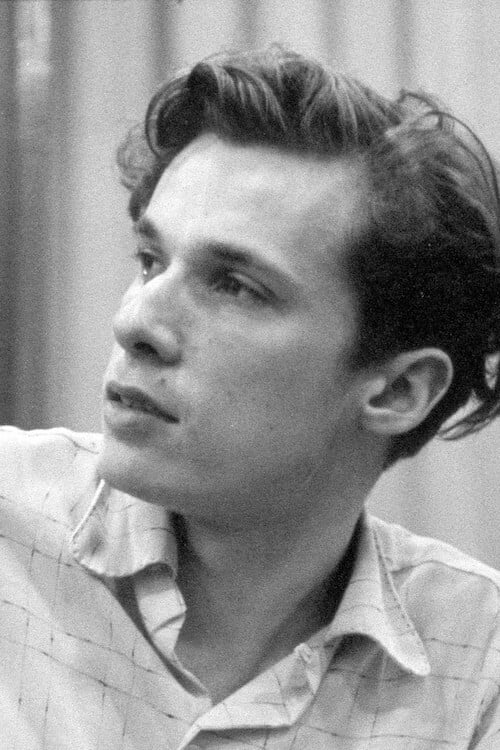
Glenn Gould
Nascimento : 1932-09-25,
Morte : 1982-10-04
História
From Wikipedia, the free encyclopedia.
Glenn Herbert Gould (September 25, 1932 – October 4, 1982) was a Canadian pianist who became one of the best-known and most celebrated classical pianists of the 20th century. He was particularly renowned as an interpreter of the keyboard music of Johann Sebastian Bach. His playing was distinguished by remarkable technical proficiency and capacity to articulate the polyphonic texture of Bach’s music.
Gould rejected most of the standard Romantic piano literature and shunned the music of several of its composers, notably Franz Liszt, Robert Schumann, and Frédéric Chopin. Although his recordings were dominated by Bach, Gould's oeuvre was diverse, including works by Beethoven, Mozart, Haydn, Brahms, pre-Baroque composers such as Jan Sweelinck, and such 20th-century composers as Paul Hindemith and Arnold Schoenberg. Gould was well known for various eccentricities, from his unorthodox musical interpretations and mannerisms at the keyboard to aspects of his lifestyle and personal behavior. He stopped giving concerts at the age of 31 to concentrate on studio recording and other projects.
Gould was also known as a writer, composer, conductor, and broadcaster. He was a prolific contributor to musical journals, in which he discussed music theory and outlined his musical philosophy. His career as a composer was less distinguished; his output was minimal and many projects were left unfinished. There is evidence that, had he lived beyond 50, he intended to abandon the piano and devote the remainder of his career to conducting and other projects. As a broadcaster, Gould was prolific. His output ranged from television and radio broadcasts of studio performances to musique concrète radio documentaries about life in the Canadian wilderness.
Description above from the Wikipedia article Glenn Gould, licensed under CC-BY-SA, full list of contributors on Wikipedia.
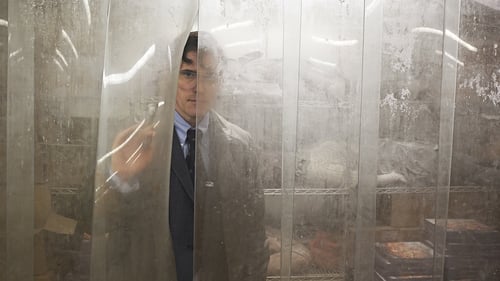
Self (archive footage) (uncredited)
Um dia, durante um encontro fortuito na estrada, o arquiteto Jack mata uma mulher. Este evento provoca um prazer inesperado no personagem, que passa a assassinar dezenas de pessoas ao longo de doze anos. Devido ao descaso das autoridades e à indiferença dos habitantes locais, o criminoso não encontra dificuldade em planejar seus crimes, executá-los ao olhar de todos e guardar os cadáveres num grande frigorífico. Tempos mais tarde, ele compartilha os seus casos mais marcantes com o sábio Virgílio numa jornada rumo ao inferno.
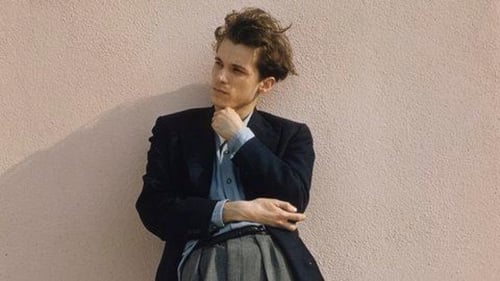
Himself (Archive Footage)
A documentary on the mysterious and influential pianist.

Performer
Prepared, shot, and edited over a period of five years from 1976 to 1981, the three-part series Glenn Gould Plays Bach has so far only been seen via the limited parameters of television transmission. Now, for the first time, this testment is made available with a sound and picture reporduction faithful to our original conception. This film, shot in New York in April and May 1981, marks his life--as if interpolated between the two peaceful Arias and the two recordings, the one opening, the other closing his career--with a symbol of cyclic perfection.

Self
A retrospective of the life and work of Glenn Gould, Hereafter synthesizes an incredible wealth of archival material from various sources.

A look at the acclaimed pianist's 1957 trip to the Soviet Union, when he became - at age 24 - the first North American to perform behind the Iron Curtain. The film features previously unheard recordings of Gould's concerts in Moscow and Leningrad, including his recital and lecture at the Leningrad Conservatory.
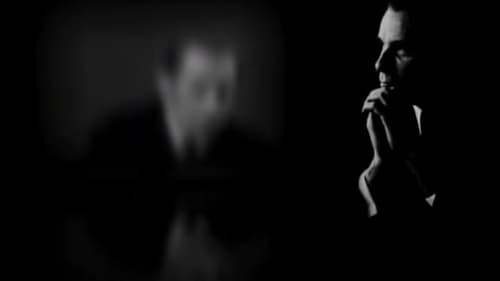
Self (archival footage)
A collection of recollections and opinions of and about Glenn Gould, interspersed with excerpts of archive footage of the great Canadian pianist speaking and playing.

Self
Academician and piano expert David Dubal narrates this absorbing documentary chronicling the instrument's history and featuring some of the 20th century's finest pianists via archival film clips. Among the keyboard virtuosos are Vladimir Horowitz, Claudio Arrau, Van Cliburn and Glenn Gould. Extras include Arrau's 1983 performance of Ludwig van Beethoven's Piano Concerto no. 4, accompanied by the Philadelphia Orchestra under maestro Riccardo Muti.

Part Two of the legendary trilogy of television films on Bach with Glenn Gould, directed by Bruno Monsaingeon.

Himself
Part One of the legendary trilogy of television films on Bach with Glenn Gould, directed by Bruno Monsaingeon, now for the first time together in a 3 DVD set. The Question of Instrument (1979), a CBC-Clasart co-production about Bach’s abstract to non-instrumental approach to composition, and performances from the Art of the Fugue, the Chromatic Fantasy, and of the complete D major Partita.

Himself
Glenn Gould's monologue in this charming documentary touches on the peace and quiet Toronto offers him, the reflexive distaste it can inspire in others, the "cultural mosaic" to which it plays host (sometimes insistently), the way it survived the 1960s without enduring the disastrous hollowing-out American cities did, and the friendly rivalry it enjoys with Montreal. Gould's clear, analytical manner of speech delivers a stream of pointed observations, dry jokes, and childhood memories, revealing his nuanced lifelong relationship with the city: not the simple one of a booster, nor the even simpler one of a detractor. But then, Gould never had anything simple about him — nor, as I've come to find out this past week, does Toronto.

Writer
Glenn Gould's monologue in this charming documentary touches on the peace and quiet Toronto offers him, the reflexive distaste it can inspire in others, the "cultural mosaic" to which it plays host (sometimes insistently), the way it survived the 1960s without enduring the disastrous hollowing-out American cities did, and the friendly rivalry it enjoys with Montreal. Gould's clear, analytical manner of speech delivers a stream of pointed observations, dry jokes, and childhood memories, revealing his nuanced lifelong relationship with the city: not the simple one of a booster, nor the even simpler one of a detractor. But then, Gould never had anything simple about him — nor, as I've come to find out this past week, does Toronto.

Self
Filmmaker Bruno Monsaingeon visits piano virtuoso Glenn Gould more than ten years after his self-imposed exile from the stage, which results in a mixture of interview and performance.
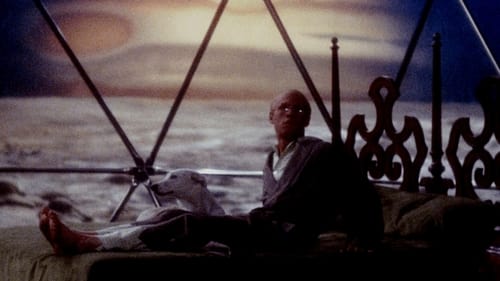
Musician
Billy Pilgrim, um veterano da Segunda Guerra Mundial, encontra-se misteriosamente distanciado do tempo, para poder viajar, sem poder ajudá-lo, desde os dias de sua infância até aqueles de sua vida peculiar em um planeta distante chamado Tralfamadore, passando por sua amarga experiência como prisioneiro de guerra na cidade alemã de Dresden, sobre a qual paira a sombra inevitável de uma tragédia indescritível.

Himself
Based on the radio documentary by Glenn Gould, The Idea of North is part filmed docudrama, part fantasy, and part forerunner of music television.

Writer
Based on the radio documentary by Glenn Gould, The Idea of North is part filmed docudrama, part fantasy, and part forerunner of music television.

Canadian concert pianist Glenn Gould enjoys a respite at his lakeside cottage. It is an aspect of Gould previously known only to the collie pacing beside him through the woods, the fishermen resting their oars to hear his piano, and fellow musicians like Franz Kraemer, with whom Gould talks of composition. (First of two parts.)
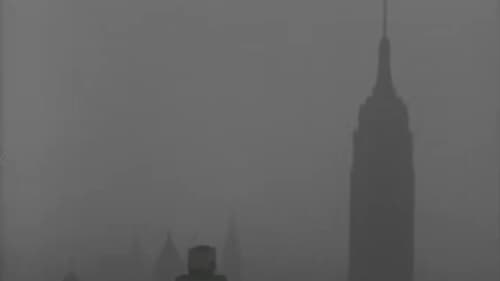
This short documentary (the second of two parts) follows Glenn Gould to New York City. There, we see the renowned Canadian concert pianist kidding the cab driver, bantering with sound engineers at Columbia Records, and then, alone with the piano, fastidiously recording Bach's Italian Concerto.

Director
Short comedy shot by Glenn Gould during his vacation in the Bahamas

Himself
Short comedy shot by Glenn Gould during his vacation in the Bahamas







